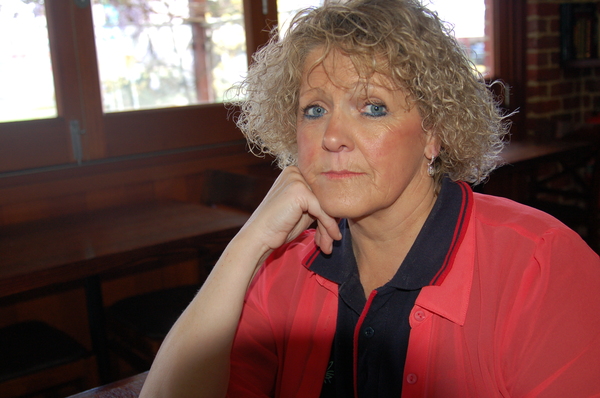
By Aneeka Simonis
STUDENTS from Grade 4 need to be educated about the dangers of ice, according to drug rehab founder Janice Ablett.
She knows of kids as young as 10 getting hooked on the nasty drug, and has seen first-hand the hugely powerful grip ice can have on users.
Her oldest grandchild is eight – and Janice determined to do all she can to stamp out the drug, and educate young people about its harms before it completely takes over the emerging generation.
Janice, 53, from Drouin, is the founder of The Ice Meltdown Project which claims to have treated up to 500 ice-affected people from all across the country since it was established two and a half years ago.
She runs a detox centre out of a home in Drouin, with almost nightly rehabilitation and check-up sessions for users as they come off the drug.
Importantly, families are required to take part in almost all parts of the user’s doctor-facilitated detox and rehab journey.
Up to three users and their family temporarily live at the drug safe-haven during their detox, while locals come down off the drug in their own homes with the program support.
They are made to follow a strict 14-day regime, then take part in a 12-month rehabilitation program which includes group and one-to-one therapy.
“First they see one of our doctors at either Bunyip or Drouin. They are assessed and put on medication to help detox them,” Janice explained.
“They must come in with their parents and sign a 14-day contract. They aren’t allowed contact with anyone outside their family – no phone, no Facebook and they are tested every week.”
She did not detail what type of medication was used in the detox program, but said users were contractually forbidden from administering medication themselves.
“Parents administer the pills. It’s in the contract,” Janice said.
All those on the 12-month rehabilitation program are made to undergo random drug testing each week.
The program includes doctor visits on Monday and Friday, one-to-one counselling on Tuesday, a family gym activities night on Wednesday, group therapy on Thursday and church on Sunday.
During group therapy sessions, recovering addicts aren’t the only ones counselled.
Affected family members are also to discuss the issues they face day-to-day.
The Wednesday night gym activity is a bit of a social break for all – but it’s one of the most important parts of the recovery program.
“Even if the person is 40 years of age, we get the family to come out. This drug rips families apart, they just don’t talk,” she said.
“It’s important that the family do activities together and have a break and see their son or daughter is trying at the gym,” she said.
She estimates 60 per cent of users who go through the program get off the drug for good.
Many relapse and return.
“If we get five out of 10 off the drug, we are happy,” Janice said.
The program has never received government funding.
It survives off donations from the community desperate to see the end of the life-ruining drug – and next year, it is expected to relocate to an official dayhab centre.
The Ice Meltdown Project is also working at educating students in schools.
It’s run talks at schools including Drouin South Primary School, Drouin Primary School and Warragul Secondary College as well as at local sporting clubs including footy and netball clubs.
Janice said she’d been astounded by some kids’ involvement with drugs at such a young age.
“On one occasion, we spoke to about 50 kids and five of them knew someone in their family who used the drug or was touched by it. These were Grade 4 students. I didn’t even know about marijuana when I was that age,” she said.
“We need to make sure kids as young as Grade 4 are educated about this in schools.”
Short-term memory loss, twitches and huge emotional swings were some of the varied long-term effects Janice has witnessed recovering users go through.
She thinks the drug is getting worse.
“It’s become more potent. It’s more like a cocktail drug now. When we do tests, we find MDMA and heroin in their sample. I fear they are going to be triply powerful in the future,” she said.
Her eight grandchildren – aged from one week to eight – are front of mind if ever she needs reminding why she’s taken on this battle.
Losing someone to drugs is something she knows all too well.
One of her clients died by suicide 10 weeks after starting the program, another before she got the chance to meet him.
“These parents are ruined. The impacts of this drug are far beyond what anyone could ever imagine,” she said.
Janice said the rehab program was recommended through various courts in Melbourne and in Morwell.
The program is seeking volunteers.
If you’d like to get in contact with The Ice Meltdown Project, visit their website http://www.icemeltdown.org.au/ or email theicemeltdownproject1@gmail.com.






